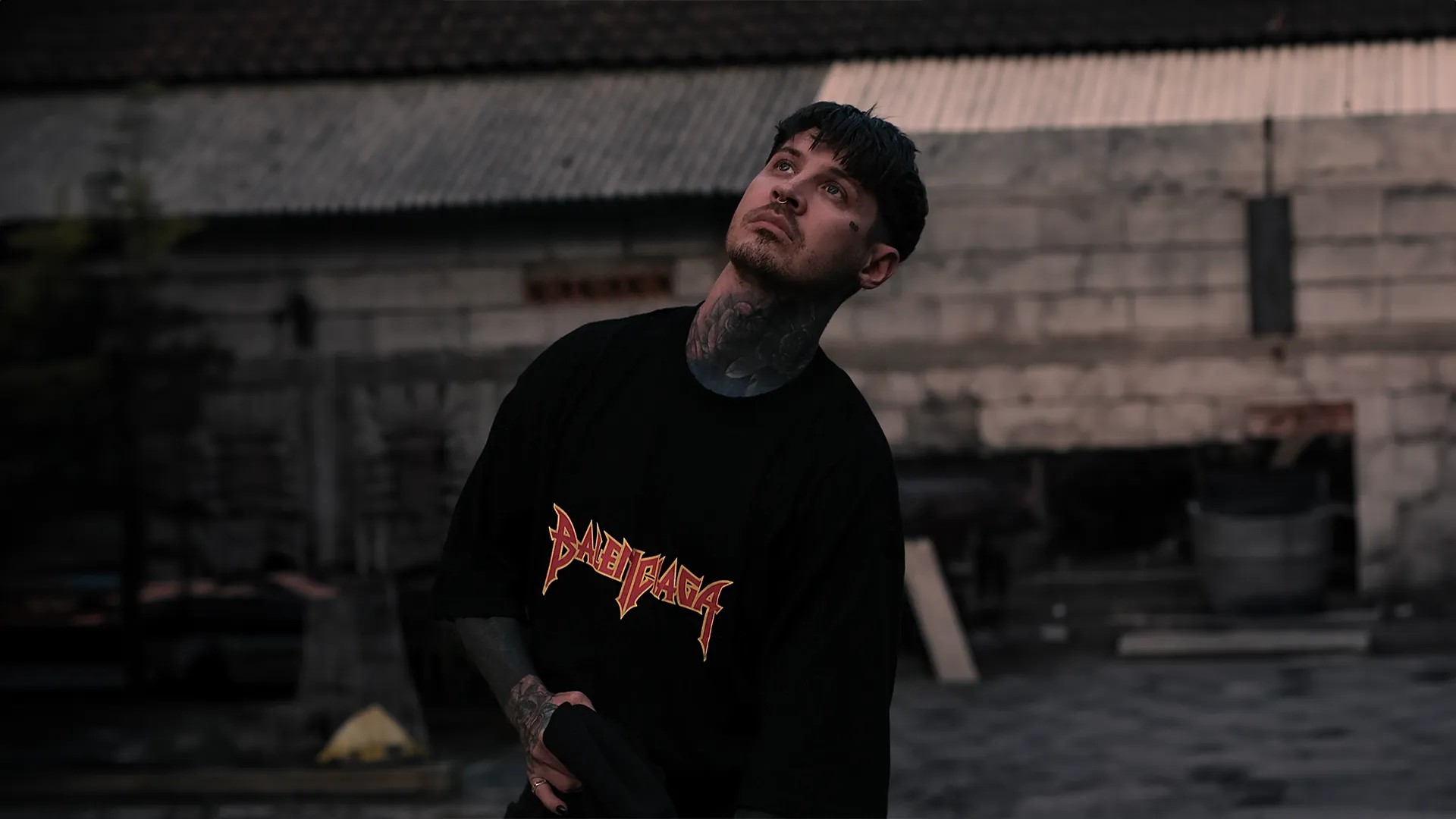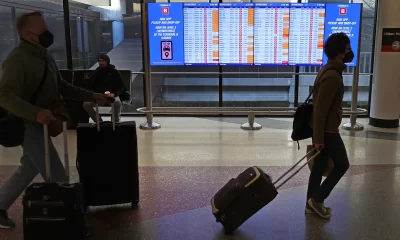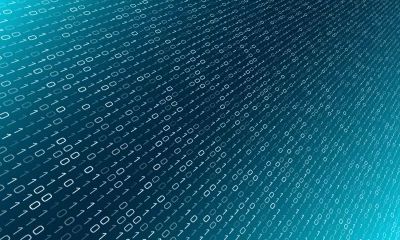News
2022 review: Visualising how the Russia Ukraine war unfolded

From late February till now, the war in Ukraine has dominated the year’s news agenda like no other story.
Even before Russia’s invasion of its neighbour, months of growing tensions hinted at the risk of a conflict in Europe. But, there was little sense of just how consequential and protracted the fighting would become.
The war has caused tens of thousands of casualties, forced millions from their homes and unleashed a multifaceted global economic crisis.
From battleground gains and losses to mass refugee flows and instrumental weapons supplies, in the maps and charts below Al Jazeera looks at how the war unfolded on the ground, the human costs and global responses.
In late 2021, satellite images emerged showing the buildup of Russian troops on the snowy frontier with Ukraine, raising fears of an invasion. Diplomatic efforts were fruitless and on February 24, Russian President Vladimir Putin in a televised speech announced what he called a “special military operation” to “denazify” and “demilitarise” Ukraine.
People across Europe’s second-largest country woke up to the sound of sirens and explosions as Russian ground forces invaded from four main fronts in the north, northeast, east and south, while artillery and missiles targeted numerous locations.
President Volodymyr Zelenskyy pledged Ukraine will fight back as his government declared martial law and told Ukrainians to take up arms.
In the first month of the war, Russian forces pressed towards Ukraine’s largest cities, including the capital, Kyiv, and the second-largest city of Kharkiv. Moscow’s troops took control of the southern city of Kherson early on, but any Russian aspirations for a swift takeover were stymied by tough Ukrainian resistance.
Bucha, on the outskirts of Kyiv, became a strategic base for Russia’s attempt to advance towards the capital. However, when Russia pulled its troops out of the Kyiv region at the end of March, stating that it would now focus on capturing the eastern Donbas region, evidence of alleged war crimes began to emerge. During a visit to Bucha in April, Karim Khan, the International Criminal Court’s chief prosecutor, described Ukraine as “a crime scene”.
By June, Russia controlled one-fifth of Ukraine, including the southern port city of Mariupol after months of heavy fighting. The front lines largely solidified during mid-year but by early September, Ukrainian forces managed to take advantage of a weaker Russian presence in northeastern Ukraine following the redeployment of Russian fighters to Donetsk and the southern axis, where a Ukrainian offensive in Kherson presented a threat.
The result was a swift counteroffensive that took the Kremlin by surprise and resulted in Ukrainian forces retaking large pockets in Kharkiv province and the town of Izyum – according to the British defence ministry, the retaken territory was at least twice the size of London.
“Within four days, Ukraine nullified four months of success of the Russian army that cost them a huge amount of victims,” Nikolay Mitrokhin, a Russian expert at Germany’s Bremen University.
Putin responded by announcing the annexation of four partially occupied provinces of eastern and southern Ukraine. The move came after voters in Donetsk, Luhansk, Kherson and Zaporizhia backed joining Russia, according to the results of referendums rejected by the government in Kyiv and its Western allies as meaningless and illegal.
Even though Putin declared that Russia had “four new regions”, calling its residents “our citizens forever”, his troops weeks later retreated from the city of Kherson, the first and only regional capital to be captured by Russian forces since the start of the war.
The decision, Russian officials said, was taken to save the lives of Russian soldiers in the face of a Ukrainian counteroffensive and difficulties to keep supply lines to the strategic city open.
Fighting has since largely focused on Donbas, where Russian forces have for months been battering the city of Bakhmut in Donetsk, at great cost, while Ukrainian troops push towards the key town of Kreminna, in Luhansk.
Refugees fleeing
The war has created one of the largest human displacement crises in the world.
About one-third of Ukraine’s more than 40 million population have been forced from their homes at some point since the invasion, with more than 7.8 million refugees heading towards Europe and some six million being internally displaced within the country. The European Union has granted Ukrainians the right to stay and work for up to three years in the 27-member state area.
Since late February, the UN has recorded 16.5 million border crossings leaving Ukraine and 8.7 million entering. Those who have fled Ukraine are mostly women and children, as men aged between 18 and 60 were instructed to remain and fight.
The map below shows where people have been fleeing.
The cost of living
The continuing conflict has led to a global cost of living crisis, with the price of commodities including food items, fertiliser and fuel rising.
In particular, the war exposed Europe’s reliance on Russian energy, while disruptions of grain exports led to rising food prices in countries highly dependent on Ukraine and Russia for such supplies.
The effect has also been felt within Ukraine, which has suffered economic and social losses from damage to infrastructure, labour force dislocation and limited market access.
According to the International Monetary Fund, Ukraine’s gross domestic product (GDP) is expected to drop by one-third in 2022.
In December 2021, two months before Russia’s invasion, Ukraine’s inflation rate stood at 10 percent. By November 2022, it had risen to 26.5 percent. The price of food staples, such as bread, has risen 35 percent, while fuel and transport costs have increased about 40 percent.
Living in the dark
Since October 10, waves of Russian attacks have destroyed or damaged power stations and other infrastructure needed to keep millions of Ukrainians safe from harsh weather conditions.
The attacks have destroyed more than 40 percent of Ukraine’s energy facilities, leaving entire cities without heat and water. Ukraine’s Western allies have said assaults on critical sites are designed to weaponise the winter in Europe.
Overall, Ukraine’s energy generation has declined since the invasion, with the sharpest drop in nuclear energy, which powers more than half of the country’s electricity. Demand fell in the first week of the war by about 30 percent, partly because a number of Ukraine’s 15 nuclear reactors were disconnected from the grid when Russia invaded.
With winter conditions setting in, there has been more demand for electricity but rolling blackouts have meant that families used sleeping bags to stay warm, surgeries in hospitals were performed by phone flashlight, and people have tried to find spots in cities where they can charge their phones.
Sanctions against Russia
At least 46 countries or territories have imposed a total of more than 10,000 sanctions on Russia over the war, making it the most sanctioned country in the world, ahead of Iran, Syria and North Korea.
Countries and blocs including Australia, Canada, France, Japan, Switzerland, the United Kingdom, the United States and the EU have placed 8,613 sanctions on individuals, 1,658 against entities, 92 against vessels and 14 on aircraft.
By the end of 2022, Russia’s GDP is expected to drop by up to 4.5 percent in the worst-case scenario, according to projections by the World Bank.
Western aid to Ukraine
The US, EU and European states provide most of the military, financial and humanitarian aid to Ukraine, according to data released by the Kiel Institute for the World Economy, a German think-tank.
The figures collected by the Kiel Institute quantify military, financial and humanitarian aid from governments to Ukraine, mainly the EU, and G7 countries. Military assistance includes weapons, equipment and financial aid for the Ukrainian military. Humanitarian relief covers medical, food and other items for civilians, while financial assistance comes in the form of grants, loans and guarantees.
In total, the US has committed about 47.8 billion euros ($50.3bn) of military, financial and humanitarian aid to Kyiv, with almost half coming in the form of military assistance. EU institutions such as the European Investment Bank, the EU Commission and Council, and the European Peace Facility have committed 35 billion euros ($36.8bn) in aid to Ukraine, mostly in the form of financial help. The UK is the third-highest contributor of aid to Ukraine, with 7.1 billion euros ($7.5bn) committed between January 24 and November 20.
Weapons defining the war
Western military supplies have fuelled Ukraine’s counteroffensives in the northeast and south, helping it regain large swaths of territory. Key among them have been the US-supplied High Mobility Artillery Rocket Systems, or HIMARS.
“HIMARS, along with GMLRs [Guided Multiple Launch Rocket Systems], achieve remarkable strike precision,” said Konstantinos Grivas, who teaches advanced weapons systems at the Hellenic Army Academy, adding that the “Russians have nothing similar”.
In mid-December, the US also agreed to send a Patriot missile battery to Ukraine. The surface-to-air guided missile system is one of the “most widely operated and reliable proven air missile defence systems”, according to Tom Karako, director of the Missile Defense Project at the Center for Strategic and International Studies. The theatre ballistic missile defence capability would be advantageous for Ukraine in its defence against ballistic missiles, which have destroyed critical and energy infrastructure.
Conversely, Russia has lately been taking advantage of so-called “kamikaze” drones to inflict widespread damage, sending volleys of them towards Ukrainian cities and military positions. The Ukrainian government has accused Iran of providing Russia with the low-cost Shahed drones, which carry 40kg warheads and are designed to fly low, thus evading radar. Iran has denied.

News
Tattoo Artist, Entrepreneur, and Oil Painter Kirby van Beek Makes a Mark in the Industry

Kirby van Beek, a talented tattoo artist, entrepreneur, and oil painter, has emerged as a prominent figure in the world of tattooing, showcasing his expertise in black and grey realism. Known for his distinctive designs and captivating portraits with a dark twist, Kirby has established himself as a highly regarded artist, earning recognition both locally and internationally.
Kirby’s journey as a tattoo artist began at the age of 18 when he taught himself the art form while simultaneously pursuing his education in forensic science. During this time, he displayed unparalleled dedication, working at a morgue during the week and honing his tattooing skills during weekends and spare hours. Kirby’s passion for tattooing led him to work at various tattoo studios in the Netherlands, solidifying his experience and expertise in the field.
About Kirby van Beek:
Kirby van Beek is a talented tattoo artist, entrepreneur, and oil painter based in [City]. Renowned for his expertise in black and grey realism, Kirby’s distinctive designs and captivating portraits with a dark twist have earned him a prominent position in the industry. With a passion for tattooing and oil painting, Kirby aspires to become a globally recognized artist, leaving a lasting impact on the world of art.
«The things I love most about tattooing is meeting different clients and getting to know them on a personal level during a long tattoo session,» says Kirby. «There is nothing more rewarding than tattooing individuals who appreciate my art so much that they choose to wear it on their skin for life.»
Specializing in realistic black and grey tattoos, portrait tattoos, and horror tattoos, Kirby’s work has garnered attention both nationally and internationally. His talents have been showcased at several tattoo conventions abroad, and his captivating designs have been featured in prominent tattoo magazines. Additionally, he has been recognized by esteemed publications such as LINDA magazine in the Netherlands and the local newspaper BN de Stem. Furthermore, Kirby’s exceptional skills led him to participate as a tattoo artist in the Dutch version of MTV’s Just Tattoo of Us.
Looking ahead, Kirby aspires to become a world-renowned tattoo artist and oil painter, with a particular focus on portrait tattoos and dark horror tattoos.
His ultimate goal is to reach clients and famous individuals around the globe, sharing his unique artistry and leaving an indelible mark on the industry. In the future, Kirby envisions opening an art show to showcase his diverse body of work.
To learn more about Kirby van Beek and explore his captivating portfolio, visit his official Instagram page (@kirbyvanbeek) or his website www.the-continental.nl.
News
DJ Khenya Takes Center Stage at Blue Marlin Ibiza, Spreading Joy and Connection

The music of DJ Khenya pulsates with rhythm and emotion. A rich mélange of sun-kissed sounds that blend percussive beats with indie and deep house. The artist’s journey to Ibiza has laid the foundation for a musical expression that communicates joy and connectivity. Taking the reins at Blue Marlin Ibiza, Khenya’s vibrations will inspire dance floor dreamers to move and let go.
From the stage at Blue Marlin Ibiza, DJ Khenya has shared experiences alongside some of the most influential names in the music industry. When asked about the impact of these experiences, the artist responded humbly: «The truth is I feel lucky. I have total admiration for them as they are a source of inspiration for me.»
The energy at Blue Marlin Ibiza is unlike any other, according to DJ Khenya. He describes the place as «a life experience,» synonymous with summer and with all the ingredients to feel in a state of bliss when you’re there. He thanks the team for being like a family to him and for everything they’ve done.
This summer, DJ Khenya will take his audience on a journey filled with unforgettable emotions. He comments, «My goal is to transmit uplifting and unforgettable sensations. My audience is what sets my heart on fire, and I want them to feel my desire to make them dance.»
The path that led DJ Khenya to become a DJ began in Havacia, Cuba, where he grew up in an environment where rhythm, dance, and poetry are like the air we breathe. With son and salsa running through his veins, his first experience at an electronic music party in the early 2000s marked a shift in his life. Khenya recalls hearing ‘The Underground’ by Celeda and says, «It was a different Cuba, and I loved it. I think from that moment, something changed inside me. A seed had been planted, and life would take me in that direction.»
Having traveled the world and now based in Ibiza, DJ Khenya reflects on how these experiences have shaped his identity as an artist. He comments, «Traveling the world is a privilege that every human being should have, especially an artist because when you have these experiences, you can understand different ways of life and the musicality of each place. Creativity is born from that knowledge, and I still have a lot to learn in that sense.»
This summer, DJ Khenya promises to take Blue Marlin Ibiza to new heights with his unique music and his desire to make everyone dance. The experience is guaranteed to be a celebration of life, joy, and connection through music.
News
Oliver Rouz: Weaving Ink and Inspiration into a Legacy

Born on February 13th, 1988, Oliver Rouz’s path to success is one marked by determination, passion, and the pursuit of creative endeavors. From a young age, Oliver exhibited a profound love for various forms of creativity, which ultimately led him to become one of the country’s most celebrated tattoo artists.
During his school years, Oliver’s artistic talent set him apart. His favorite cartoon characters became his canvas as he tirelessly recreated them in his own style. However, drawing was merely a pastime during his teenage years, a source of pleasure until music took center stage in his life.
In 2005, Oliver formed the «Fairy Tale Jelissa Rose» band, a pivotal moment that expanded his horizons. Immersed in the music community, he developed a newfound fascination with tattoos and ink artistry, spurred by the band’s association with the tattoo culture.
A serendipitous encounter with Artem at the «Quick Silver» shop in Moscow in 2010 marked a turning point. Artem’s influence led Oliver to consider a life-altering decision. By 2012, Oliver, now ignited by a passion for tattoos, made a bold move to another city, all while nurturing his tattoo aspirations.
Artem’s transformation into a tattoo artist himself inspired Oliver further. As fate would have it, an opportunity arose in 2012 for them to collaborate and open their tattoo studio in Moscow. This venture required Oliver’s dedicated efforts, alongside his commitment to saving funds to fuel their creative endeavor.
Oliver’s tattooing prowess flourished within a year, prompting a return to his hometown to establish several home-like studios. Yet, he recognized that true growth beckoned him back to Moscow. Thus, in 2017, he joined Good Hands Tattoo, laying the foundation for his continued ascent.
Oliver’s indomitable spirit and devotion to his craft bore fruit, as evidenced by his stint at Black Point studio, born out of a collective dream. His trajectory exemplifies the power of dedication, leading him to become a recognized tattoo luminary within the nation.
Oliver’s journey, however, extends beyond tattooing. From his early affinity for music, highlighted by the formation of his punk rock band at 14, to his involvement in the music industry and flirtation with global recognition, his story embodies the resilience required to navigate creative industries.
A pivotal moment arrived in 2021 when Oliver, undeterred by previous setbacks, chose to channel his creative energy into designing game art. Leaving behind a stable job, he invested his savings of around $5,000 to embark on a transformative journey. Guided by Hexeth’s interview and tutorials, Oliver delved into the realm of game design.
Fueled by dedication and a newfound purpose, Oliver’s creative expression culminated in designing elements for popular games like CS:GO and RUST. Through unwavering commitment and rigorous self-education, he harnessed the potential of his artistic flair.
Today, Oliver Rouz’s name resonates as a testament to the potential of human determination. His path from a young artist with a penchant for creation to a revered tattoo and game artist serves as an inspiration to countless dreamers. Oliver’s legacy continues to evolve, as he pushes the boundaries of his craft and inspires others to chase their passions unrelentingly.
For more information and to view Oliver’s work, visit his Instagram profile: @oliverrouz.
-

 Music2 años ago
Music2 años agoMarcus King debuts “Lie Lie Lie,” a fiery and revelatory new single – Grateful Web
-

 News1 año ago
News1 año agoMore than 1,100 flights canceled as winter storm moves into Northeast
-

 News2 años ago
News2 años agoJoint Communiqué: United Kingdom – The State of Qatar
-

 News1 año ago
News1 año agoAvalor wants to unify cybersecurity tools by aggregating data
-

 News1 año ago
News1 año agoCoro raises $75M at a $575M valuation to grow its all-in-one cybersecurity platform
-

 Public Notices1 año ago
Public Notices1 año ago3CX’s supply chain attack was caused by… another supply chain attack
-

 Lifestyle1 año ago
Lifestyle1 año agoAs Ukraine prepares counteroffensive, Russia appears in disarray
-

 Business1 año ago
Business1 año agoEntrepreneur Adnan Ashraf Partners with Crypto Crowdfunding Platform to Expand Nine Restaurant Brand Globally